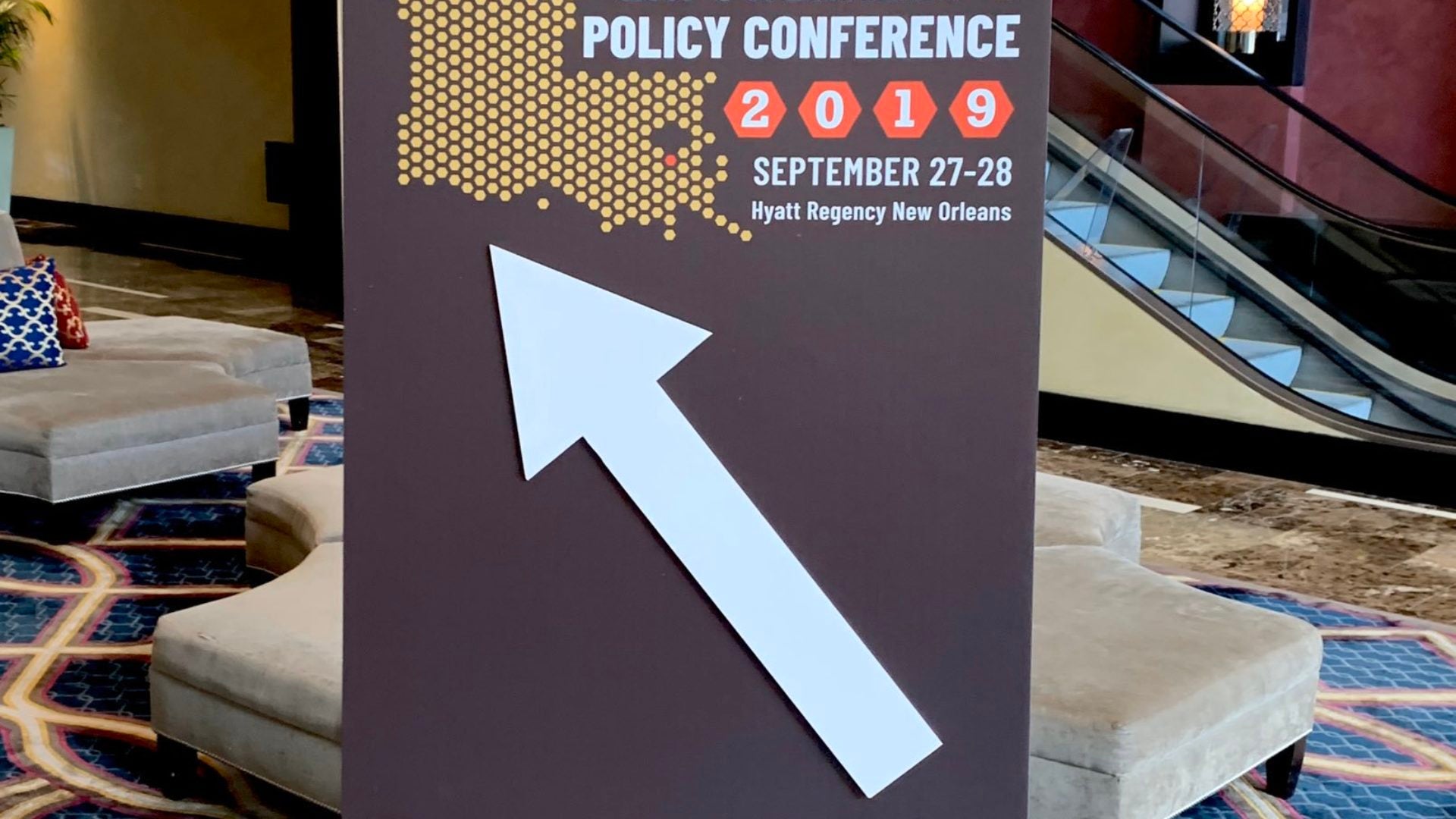
On Friday, the Urban League of Louisiana opened it’s inaugural Empowerment and Policy Conference in New Orleans. The conference was created by the Urban League of Louisiana and the Louisiana Legislative Black Caucus as a vehicle for Louisiana stakeholders to discuss issues affecting African Americans in the state.
In her opening remarks, Judy Reese Morse, the president and CEO of the Urban League of Louisiana, stated, “6 months ago we launched this partnership to strategically work together to serve African American communities across the state. Today is not only about learning, but for us to take a deep dive into data.”
Friday’s opening session included a panel moderated by PolicyLink’s Associate Director Tracey Ross entitled, “Creating an Environment for African Americans to Thrive in Louisiana,” which included panelists from various agencies and organizations across Louisiana. The panel focused on the challenges and opportunities around key areas impacting the quality of life for African-Americans in Louisiana.
The second panel of the evening was a much-needed discussion about mental health in the Black community. Dr. Denese Shervington, President of the Institute of Women and Ethnic Studies, moderated a timely panel entitled Mental Health: The Stigma that Stops Us.
The panel discussion began with a short video by The Confess Project, a grassroots organization that is committed to building a culture of mental health for boys and men of color. As part of their strategy to impact wellness in the African-American community, The Confess Project Barbers Coalition trains barbers to become mental health advocates by encouraging cultural dialogue specific to African-American males. Partnering barbershops become voices for speaking about emotional health resources for those seeking treatment for any emotional or societal related issues.
In the video, Lorenzo Lewis, Founder of the Confess Project shared a personal story, “I was in the third grade and I was crying. My Teacher said, ‘Son, why are you crying?’ As I began to tell her that I lost my dad, anybody else would naturally know to show some form of grief, but she said, ‘Toughen up, you a man, get through it.’ As an eight-year-old child, to hear a teacher tell me that I was a man, that I must fight through that, that was hard. We lose someone, see police brutality on television, who do we talk to?”
Friday evening’s panel included mental health experts from across Louisiana, as well as clergy and non-profit leaders. Unfortunately, as many of the mental health professionals stated on the panel, the dehumanization of African-Americans suffering from mental health issues has been a common practice since slavery.
In 1851, a Louisiana pseudoscientist named Samuel A. Cartwright diagnosed fleeing enslaved Africans as suffering from drapetomania. Dr. Cartwright defined drapetomania as, ”the cause, in the most of cases, that induces the negro to run away from service, is as much a disease of the mind as any other species of mental alienation, and much more curable.”
“I think for myself when I see mental health and the stigma, is that it comes out in many different ways and the way we talk about it and frame it. Some people may say they’re going through some things and dealing with some issues. Because of stigma a person might not reach out for health. I think the conversation around it is changing. Black men want to talk about these issues even if it’s in a barbershop or talking to our families,” said Leon Winters, founder of Winters Mental Health and Counseling.
After much dialogue from panelists about childhood trauma, faith-based initiatives, removing stigma, implicit bias, a call for more Black professionals, mental health workers and responders to push for advocacy and policy changes, there was an unanimous thrust to move from discussion and description to developing models and best practices that are culturally responsive to building a healthier community.